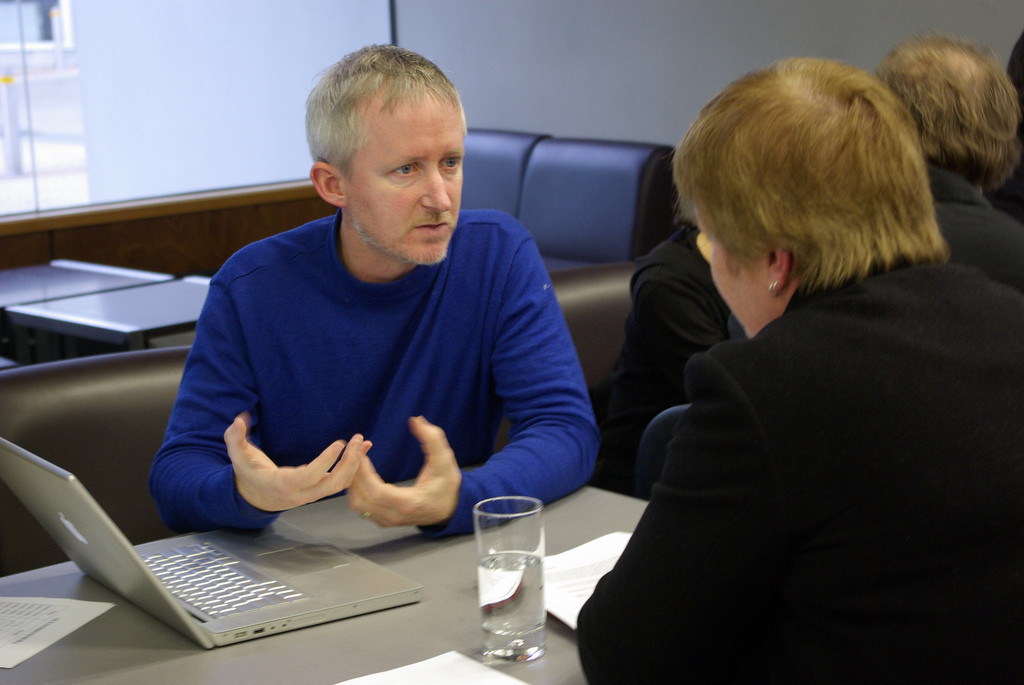
With so many choices for online programs, it can sometimes be difficult to wade through the options and find the legitimate ones. But there are certain warning signs you can notice to tell if a program is a scam. Read More

With so many choices for online programs, it can sometimes be difficult to wade through the options and find the legitimate ones. But there are certain warning signs you can notice to tell if a program is a scam. Read More

The time you schedule an interview may influence your likelihood of getting a job. Make sure you know when the best, and worst, times to have an interview are.
Try not to be the first. You don’t want to be ahead of too many other candidates so you don’t become the benchmark against which all others are measured.
Don’t be the last, either. By the end of the day, your interviewer might be more tired and less likely to think clearly and critically, meaning they won’t be at their best to meet you.
Image via Flickr/Alan Cleaver

Searching for a job can be pretty frustrating. With a lot of waiting around and probably some rejection, you may just want to give up completely.
Remember to tell yourself not to cave. If you commit yourself and tell yourself you can do it, you will.
Think about your past accomplishments. Have you been in other situations where you had to push through and keep going? What did you do then? Apply the same strategies here.
Image via Flickr/Holly Lay

When you’re offered a job that you’re unsure about, sometimes it might be better to just say no, rather than accept it anyway, only to realize later on that you’ve made a huge mistake.
Do your research. Learn all you can about the company and the position, and if you see any warning signs, chances are it may not be the right position for you.
When you’re in the interview, observe the interviewer. Do they seem prepared for you? If they don’t, they probably aren’t prepared in other aspects of their business.
Image via Flickr/Clover Autrey

Asking your employer to pay for your tuition is a pretty intimidating conversation. By avoiding some common mistakes, you can increase your chances of getting a “yes.” Read More

You may not be able to predict what questions an interviewer will ask, but you can be prepared. Once you know how to answer the most common questions, you’ll be ready no matter what question is thrown your way.
When you’re asked to tell a little bit about yourself, don’t just give your employment history. Give the interviewer a short pitch that shows why you’re the right fit for the job.
When asked where you heard about the position, take the opportunity to show off your knowledge and interest in the company.
Image via Flickr/Roland O’Daniel

It always seems like certain people can get more done in the day than others. It’s not about working harder though; it’s about working smart.
Don’t leave anything for later. If you get an email or phone call, take care of it now and get it done.
Preparation is key. Get things ready for the next day so you aren’t pressed for time and aren’t rushing to get things here.
Image via Flickr/Ryan Ritchie

Email is an important part of all of our lives – both personally and professionally. When you send a request through email, you want to make sure it’s being followed.
First, pay attention to the subject line. It’s the first thing the recipient sees, and depending on what it says, they may or may not be likely to open it and read it.
Make sure you include a greeting. Don’t just open with your demands. A personal touch shows a level of genuine interest that many people appreciate.
Image via Flickr/Maria Elena

Coffee meetings aren’t always the best way to network. With so many applicants, it may be hard for your connections to find the time to meet.
Try sharing your work via Twitter. Shooting someone a tweet is a lot easier and quicker than meeting for coffee. And who knows? After tweeting for awhile, you might get a meeting out of it.
Another option is to share your resume through LinkedIn. Make sure you send a personal message to show your interest.
Image via Flickr/Ambernectar 13

With new technology continuing to grow, more and more people are turning to online programs to get a degree. But not all programs are safe. Read More